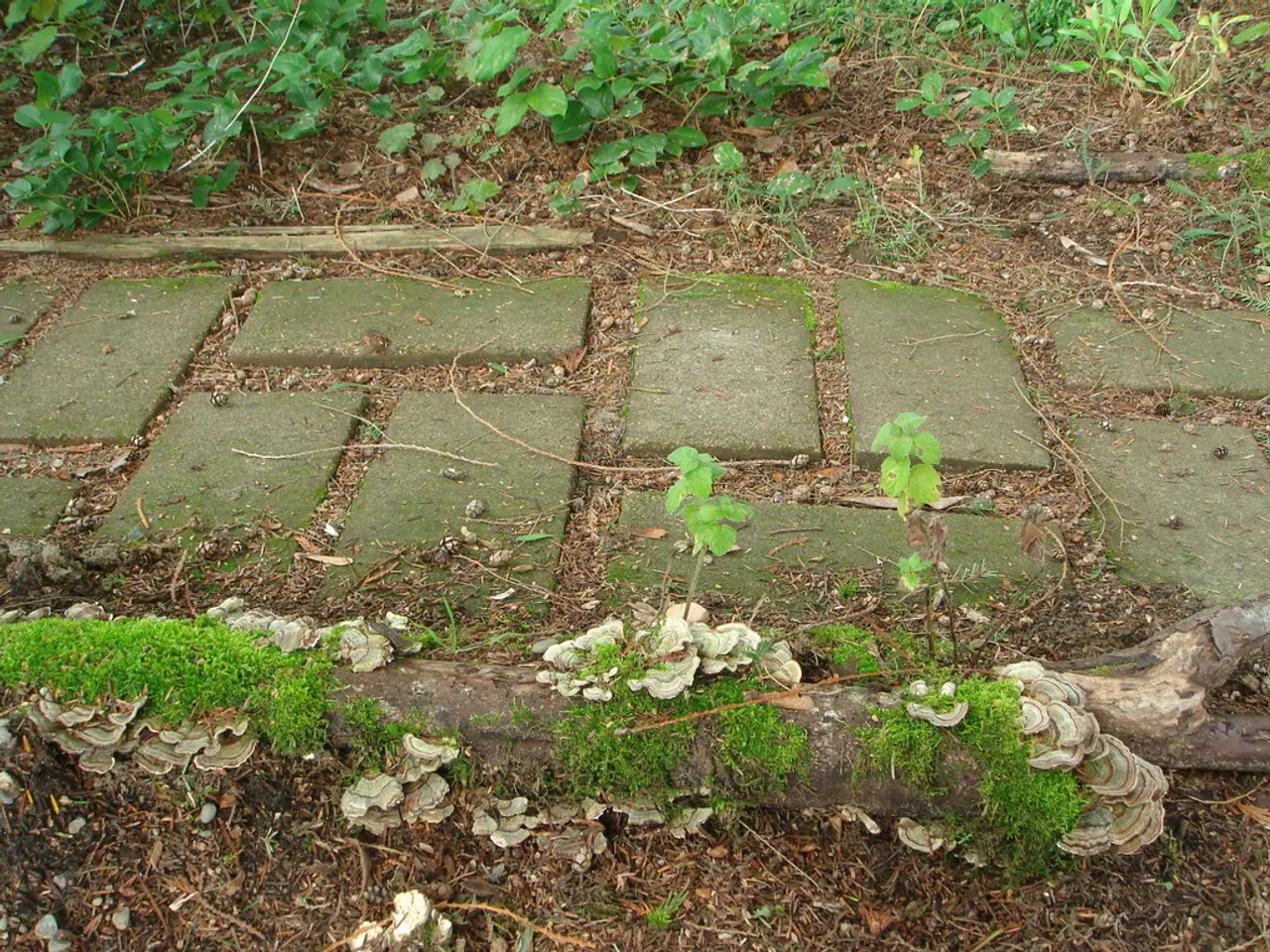Preventing Slugs from Devouring Your Garden Greenery
In the world of gardening, slugs can pose a significant threat to plants, particularly to tender leaves and young shoots. But fear not, as there are several humane methods to deter these gastropods without causing them any harm.
One effective method is to create natural barriers using rough or sharp surfaces. Coffee grounds or crushed eggshells around plants can serve this purpose well. Slugs tend to avoid such surfaces due to their discomfort and the impediment they cause to their slow movement.
Another strategy is to plant slug-repellent plants such as lavender, rosemary, sage, mint, and other aromatic herbs. These plants not only add a delightful fragrance to your garden but also act as a natural, fragrant barrier, deterring slugs due to their strong scents and unappealing textures.
Creating an environment that slugs avoid can also be beneficial. Pine essential oil, pine needles, or garlic cloves around garden beds can help, as these natural substances emit odours that slugs find repulsive, encouraging them to retreat.
Encouraging biodiversity can also help keep slug populations in check. Attracting natural predators like frogs, toads, and birds can help control slug numbers without any direct harm to the slugs themselves.
Setting out beer traps can attract slugs away from plants, although this method does kill them. If your priority is no harm, you can instead use the beer to capture and then safely relocate them away from your garden.
Manual removal is another effective method. Slugs are most active in the evening, so picking them up and relocating them far away prevents them from returning and protects your plants without killing the slugs.
Laying copper tape around plants can also deter slugs because their mucus reacts with copper, creating a mild unpleasant sensation, discouraging crossing. This is a non-lethal deterrent.
These methods work primarily by exploiting slugs' natural aversions and behaviours. Slugs dislike rough textures, strong aromatic compounds, and certain plant chemicals; they are attracted to moisture and certain food scents; and they avoid barriers or surfaces that physically or chem chemically irritate their soft bodies. Using natural predators enhances the ecosystem balance, controlling slugs without chemical intervention or harm.
In summary, natural deterrents avoid harming slugs by exploiting their natural aversions and behaviours – using rough barriers, repellent plants, aromatic oils, and predator encouragement – plus manual relocation when necessary, ensuring a slug-friendly yet plant-safe environment.
This article was last updated on June 26, 2025, by Emma Vanstone. If you have any ideas for slug deterrents, feel free to share them!
Children can learn about the wonders of science through home-and-garden projects that also help protect their young plants from pests like slugs. For instance, they can plant herbs such as lavender, rosemary, sage, mint, and other aromatic plants to create a natural, slug-repellent garden. Additionally, children can make DIY garden decorations using coffee grounds or crushed eggshells to act as barriers at the base of plants, discouraging slugs due to their texture and discomfort for these gastropods.




